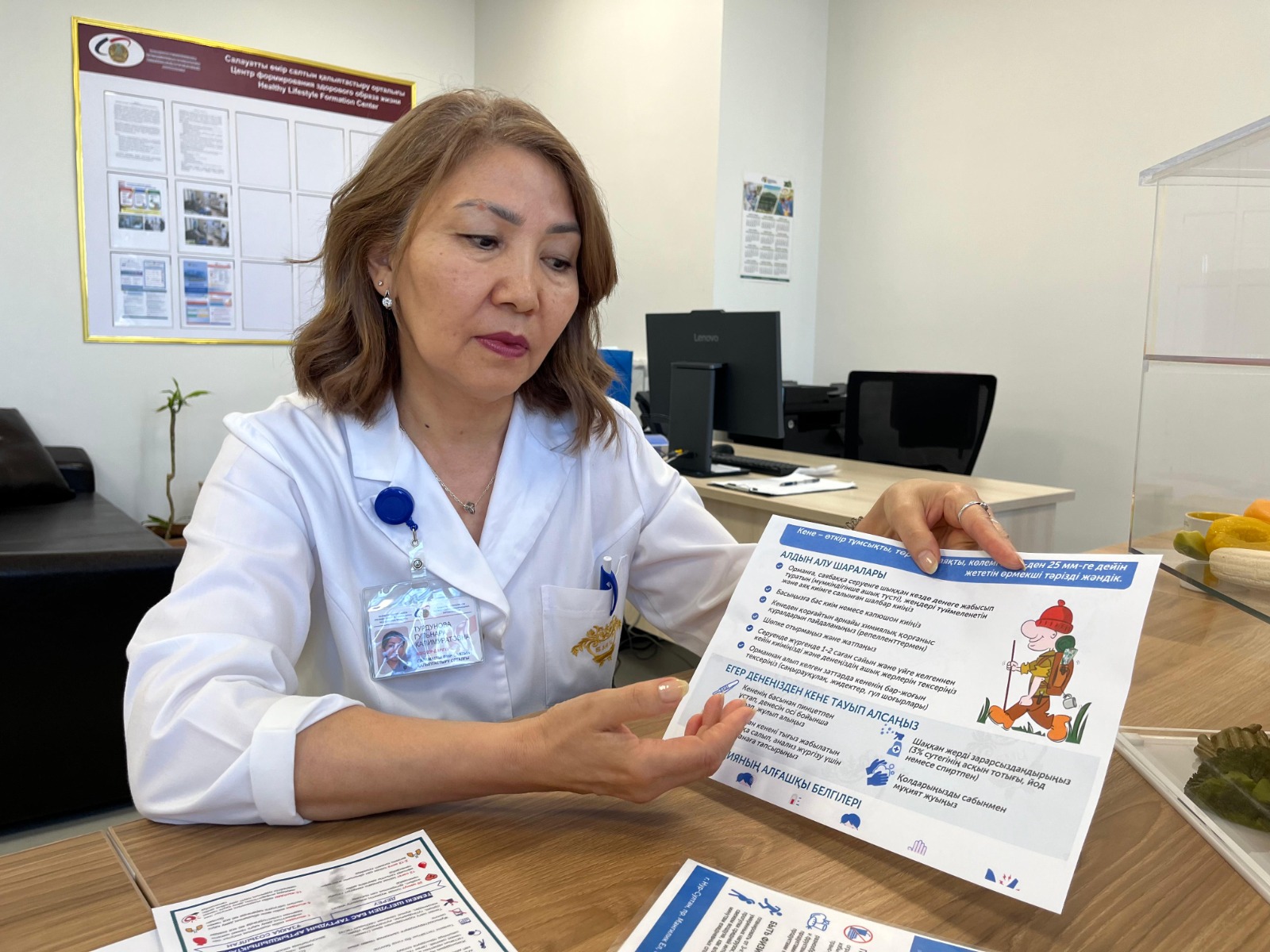
Tick season starts in the spring. As temperatures rise, the number and activity of ticks increase, reaching their peak in May and June. During dry weather, their numbers decline, but they reappear in late August to early September and disappear completely by October.
Today, Dr. Gulnar Turdunova, a physician at the Center for Healthy Lifestyle Promotion of the Medical Center Hospital of the President’s affairs Administration of the Republic of Kazakhstan, shared advice on how to protect yourself from ticks and offered several medical recommendations.
According to the doctor, a tick bite can transmit infections such as tick-borne encephalitis, Lyme disease (borreliosis), tularemia, and others. These diseases can also enter the body through micro-injuries to the skin or mucous membranes.
“Tick-borne encephalitis is a viral disease that causes intoxication and affects the human nervous system. Symptoms include redness at the bite site, weakness, headache, nausea, vomiting, loss of appetite, and fever. In severe cases, inflammation of the brain membranes (meningitis) can develop, and the brain, spinal cord, and peripheral nerves may be affected. This can lead to paralysis, disability, or in 2–5% of cases, death,” explained the specialist.
To prevent tick bites, the doctor recommends avoiding damp and shaded areas whenever possible, refraining from sitting on the grass, wearing long-sleeved clothing with a collar, and using tick repellents. She also urges residents of endemic regions and tourists to get vaccinated against tick-borne encephalitis in advance at their local clinics.
“If you are bitten by a tick, you should seek medical attention immediately. If that’s not possible, try to remove the tick yourself without tearing off its mouthparts. You can apply a drop of oil to the tick and gently extract it with rocking motions using tweezers or thread. If the mouthparts remain in the skin, carefully remove them as you would a splinter, disinfect the bite site with antiseptic, and wash your hands thoroughly. Place the tick in moist cotton inside a glass container and take it to a laboratory as soon as possible for infection testing,” advised Gulnar Kalimuratovna.
Remember: the sooner a tick is removed, the lower the risk of infection. Administering tick-borne encephalitis immunoglobulin within 96 hours of the bite significantly reduces the likelihood of disease development.




